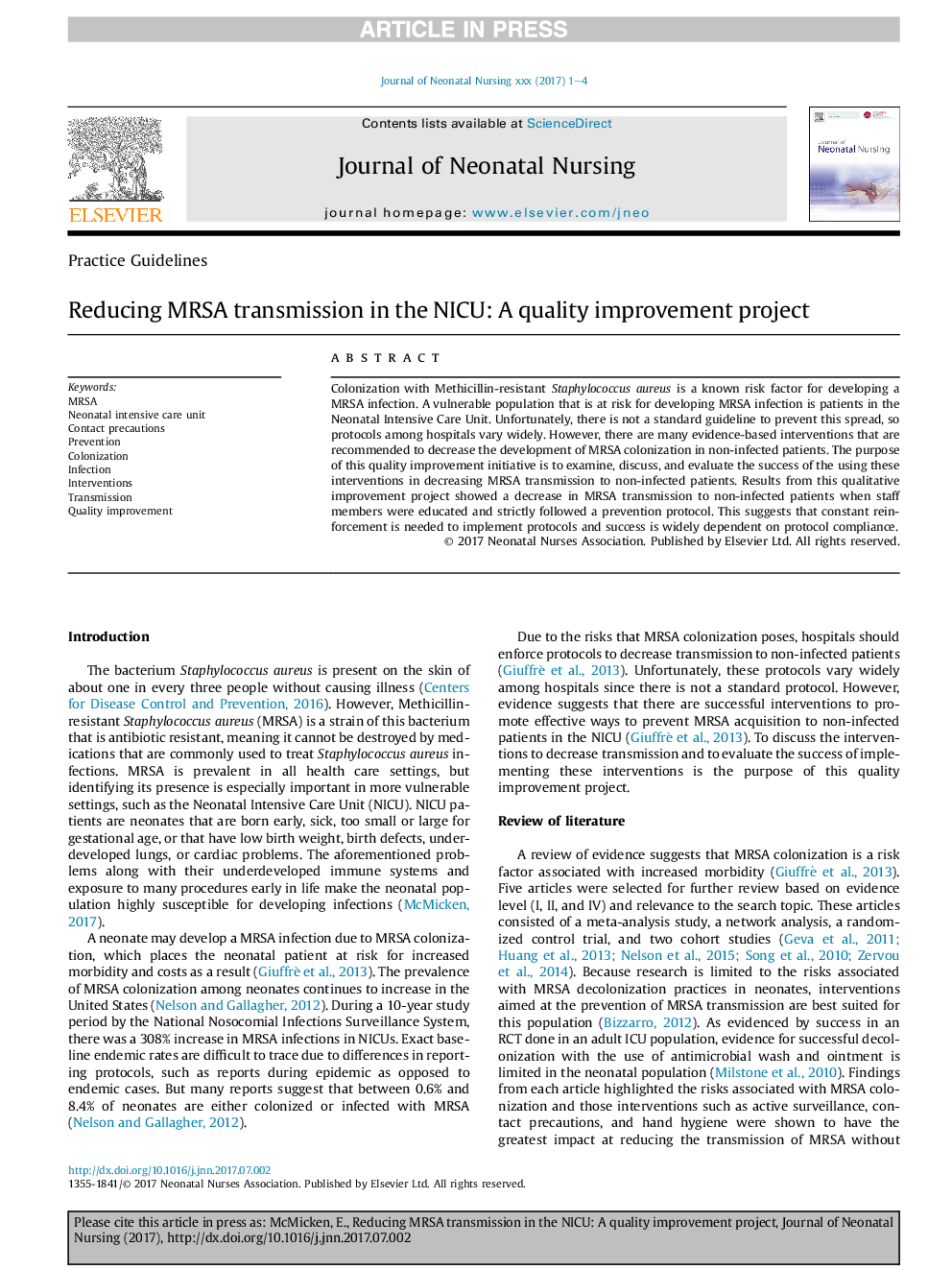| Article ID | Journal | Published Year | Pages | File Type |
|---|---|---|---|---|
| 8563953 | Journal of Neonatal Nursing | 2017 | 4 Pages |
Abstract
Colonization with Methicillin-resistant Staphylococcus aureus is a known risk factor for developing a MRSA infection. A vulnerable population that is at risk for developing MRSA infection is patients in the Neonatal Intensive Care Unit. Unfortunately, there is not a standard guideline to prevent this spread, so protocols among hospitals vary widely. However, there are many evidence-based interventions that are recommended to decrease the development of MRSA colonization in non-infected patients. The purpose of this quality improvement initiative is to examine, discuss, and evaluate the success of the using these interventions in decreasing MRSA transmission to non-infected patients. Results from this qualitative improvement project showed a decrease in MRSA transmission to non-infected patients when staff members were educated and strictly followed a prevention protocol. This suggests that constant reinforcement is needed to implement protocols and success is widely dependent on protocol compliance.
Keywords
Related Topics
Health Sciences
Nursing and Health Professions
Midwifery
Authors
Elizabeth McMicken,
